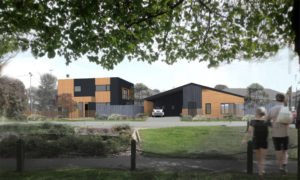These notes are from a “Restoring a Kind Climate” workshop held on the evening of 27 June 2019 at the Christchurch City Council building.
The purpose of the workshop was to provide community input into the Climate Smart Strategy review 2019, in particular to suggest practical pathways for achieving climate change mitigation goals and targets for the city. The notes are for one of the 8 topics discussed that evening.

Members of the public present around the table were builders, architects, student architects, and people with experience in renovation. These people were self-selected.
Elizabeth was the group leader and provided a general introduction to sustainable building practices and life cycle analysis, as well as a case study on the benefits of retrofitting existing buildings to be energy efficient. This led into an introduction of each person, and an extended discussion and note taking of suggestions to council. There was a general consensus that while buildings have an influence on energy use as occupied buildings, they also have a significant carbon foot print from their life cycle that reaches into transport of materials, waste creation and the mining and manufacturing of building materials. Notes from the group have been categorised into a number of sub categories. If there are any bullet points that council would like further explanation or reference to, please feel free to contact us, and we will happily expand on these points.
Provide Incentives

- Incentivise up to 10 star greenstar and homestar ratings and passive haus standards.
- Plot rations, densities in relation to zone rules.
- Rate decreases
- Reduce development contributions or consent fees
- Use more waste products in our building’s materials (example, volcanic fly ash in concrete).
- Within earthquake and flooding zones, incentivise relocatable buildings that are small, as well as tiny houses and houses with low site coverage.
- Incentivise grey water and rainwater harvesting as well as permeable surfaces for existing properties.
- Incentivise through grants and collaboration, the research and development of high quality pre-fab buildings, which tend to reduce material waste, and provide a more air tight building.
Advocacy, education from council staff.
- Advertise more the existing scheme “rates advance” (rates rebate for improving insulation in houses).
- Enabling alternative better building techniques with more natural and local materials. Support the development and implementation of the Earth Building Standards, which enable the lowest embodied energy buildings. https://www.earthbuilding.org.nz/
- Recognising better construction, and shaming construction that only reach the minimum code. The New Zealand Building Code of Compliance minimum standards are one of the lowest in the world, and are not appropriate to our climate; thus, causing much more energy use in buildings than necessary.
- Lobby from local government to national government to put climate change emissions into the resource management act.
- Create a working group in council on sustainable building practices to inform the consenting team, and to continually update and advocate for better building practices. More eco advisors.
- With the awareness that new buildings have a heavy carbon foot print initially, create a restraint on consents for new building that has a heavy carbon foot print and insure a period of education and redevelopment of plans. Push forward new construction that has a clear analysis of the carbon foot print and has shown best practices.
- Provide positions for more eco- advisors, like Julie Villard. And further, these advisors will train other CCC staff to be ready to assist the public.
- Clear advice on how to reduce waste even for alterations, and the implications of different building materials in the waste stream.
- Have a sustainable building centre space open to the public where advocacy from council staff can take place to an array of building practitioners and the general public. As well as host workshops in collaboration with leaders in the field can take place.
- Research into reuse of retrofit windows and components, and provide grants for development in this field.
Lead by example with Council owned assets
- Lead by example with council owned assets in energy efficient buildings to passive haus standard.
- Architectural and construction consultants’ bids for CCC owned assets to reach a high sustainability standard in the world.
- Implement the red list of 22 materials that are defined as toxic, not to be used in Christchurch. Educate the industry. Start with council’s own buildings.
- Create a check list before deciding to build a new asset, and decide whether it will be of greater benefit to society and the environment or more of a hindrance to climate change.
- Why are we building a convention centre? We are trying to reduce people from flying around the world.
Make mandatory for all new builds
- Thermally broken double-glazed windows – mandatory for new buildings
- Air tightness – stop drafts and heat loss in places that can simply be designed better. Particular attention to corner, roof wall, foundation wall, and window details.
- Require a minimum level 6 Homestar standard for all new builds.
- Require grey water and rainwater harvesting as well as permeable surfaces.
- Design considers building waste reduction – put fees on material waste that comes from building sites. Construction is one of the biggest creators of waste, and with the right incentives, architects and builders can reduce this.
Make Mandatory for existing houses
- Assess and display energy star ratings for selling buildings.
- Remove incinerators in kitchen sinks. These are a problem down the stream for waste and water courses.
Through the power of zoning
- Reduce urban sprawl. Make city living better, and affordable.
- Incentivise green roofs in high density areas.
- Reduce new building on good cultivatable soils.
